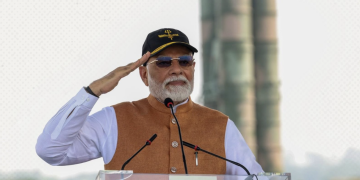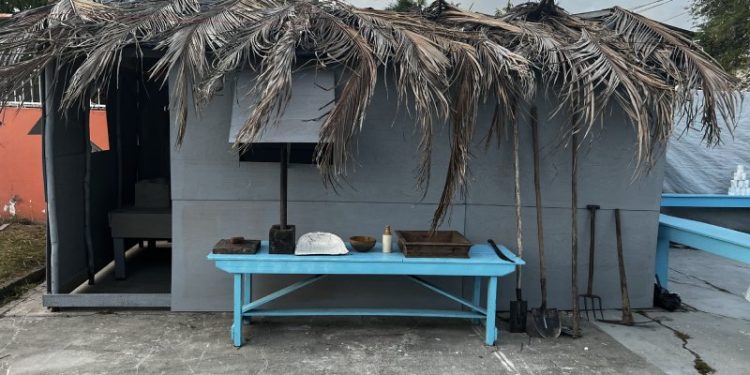Last Monday, the country observed Indian Arrival Day, officially labeled by the government as Arrival Day, as a holiday since 2004, an act preceded by a bill passed by parliament and signed into law by then President Bharrat Jagdeo. The day has significance for those of Indian ancestry and observed (celebrated) accordingly; the observance has been delayed in some areas out of respect for the mourning of Adrianna. Perturbingly, the (title of the) holiday is the most battered in the country, a pummeling and a misrepresentation of what it actually (really) is and that stems from the reluctance of all governments to give it the right appellation.
May 5 has been observed by Indians (in programs all over colony or country) for over a century in tribute to the resilience and forbearance of the fore-parents or ancestors who came from India. It was known as East Indian Immigration Day and then Indian Arrival Day by celebrants nationwide. It was an ‘Indian thing’ that attracted non Indians not dissimilar to Emancipation Day (Aug 1) being an African thing in which non-Africans also celebrated. It was a day to recognize and celebrate the countless contributions of Indians to the country. A specific date that mark the anniversary of the arrival of the first set of Indians in the then British colony — May 5, 1838 was chosen. No other ethnic group has any ties to that historical date. But for whatever reason, the term ‘Indian’ seemingly has repulsed politicians going back for decades except when it came or comes to getting their votes to win government. Is the term ‘Indian’ so repugnant? If so, why are politicians campaigning in Indian communities for their votes? It is time to right that injustice and accord it the right title. Indians must make that demand in exchange for their vote. Or give their vote to a party that so commits.
The ‘Arrival Day’ holiday was a result of a long struggle by a group of Indian rights advocates, including Dr Balwant Singh, Ryhaan Shah, Ravi Dev, Swami Aksharananda, Baytoram Ramharack, and this writer, among others, going back several decades. The public owes them a debt of gratitude for championing the country’s official recognition of the significant contributions of the pioneering Indian indentured laborers, who like their African brethren, labored in slave like conditions to help build Guyana. Just like how the Africans were recognized for their resilience, the Indians sought a similar recognition for surviving indentured servitude and for their contributions to the nation.
The struggle and demand by the rights activists since the 1970s was for May 5 to be declared “INDIAN Arrival Day”, not ‘Arrival Day’, as a national holiday. Initially, Dr. Jagan and other PPP politicians were supportive of it when in opposition up until 1992, but Burnham and the PNC (including under Desmond Hoyte was opposed although the latter approved a one off holiday in 1988 on the occasion of the 150th anniversary of the arrival of Indians in the country). In government from October 1992, the PPP did not consider proposals for an Indian Arrival holiday as a priority although Indian cultural advocates pressed the issue. The rights advocates were unrelenting on the issue and received support from then member of Parliament, Ravi Dev (of ROAR), elected in March 2001, who forced the issue on the floor of the house. Facing pressure from the party’s voter base, the PPP agreed to debate the issue in parliament. A proposal was sent to a standing committee of which Ravi Dev was a member for discussion and a draft bill. In a turnaround, in 2003, the PNC acquiesced for the holiday and agreed for it to be called Indian Arrival Day.
As related by Member of Parliament, Ravi Dev, the original bill, passed unanimously by the standing committee comprising of members of all the parties in parliament, proposed the holiday as “Indian Arrival Day” in tribute to the immeasurable contributions Indians have made in Guyana since their first arrival on May 5, 1838. It was sent to the full house for adoption. Much to the chagrin of the Indian population, the then ruling party changed the recommendation of the bill that came out of the standing committee to the amorphous “Arrival Day”. Since that time to now, some 25 years, Indian rights advocates have been appealing to governments to make amends and right a historic wrong committed on Indian Guyanese.
Trinidad and Tobago underwent a similar dilemma when a bill was presented Opposition MP Trevor Sudama to parliament to enact Indian Arrival Day as a holiday. The then ruling African supported PNM approved ‘Arrival Day’ as a holiday in 1995. When Basdeo Panday became Prime Minister, he changed it in 1996 to the right appellation as Indian Arrival Day – celebrated annually as a national holiday on May 30 to recognize the boundless contributions of Indians since their first arrival on May 30, 1845.
Every country (including St. Vincent and Grenada) where Indians were indentured commemorates Indian Arrival Day with some nations declaring it as a national holiday. They have not called it Arrival Day. Guyana should do same! The PNC and AFC and other parties are supportive. The government should act!



































































